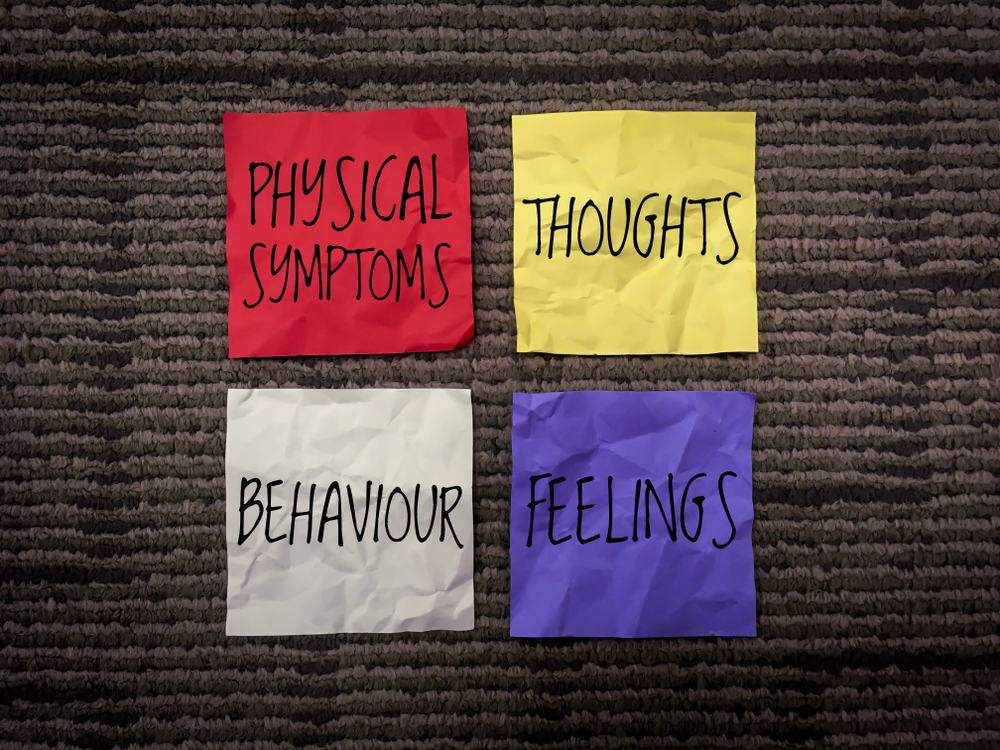What is the link between autism and anxiety, and what can be done to help manage both? Read this blog to learn everything you need to know.
Autism is a disorder that affects around 1 in every 100 people globally. It is not a learning disability, and it can impact people in different ways, much like ADHD. ASD will often look different in boys vs girls, but common challenges that autistic people face focus around social skills, repetitive speech (e.g. echolalia) and behaviours, and several comorbidities – including sleep disorders and anxiety. But, what is the link between autism and anxiety, and why is it so common?
At the Brain Workshop, we are committed to helping to make your life easier by bringing help and understanding to it. We understand that autism can be a complicated disorder to understand and manage, and you will face challenges. However, you do not need to face them alone.
Why Autism and Anxiety Are Commonly Linked

Currently, it is estimated that around 4% of people around the world have an anxiety disorder. Before we dive into this topic, however, it’s important to make the distinction between having anxiety or an anxiety disorder and feeling anxious. We will all, at some point in our lives, feel anxious about something, but this is not the same as having an anxiety disorder.
In order to be diagnosed as having an anxiety disorder, you need to experience it for a prolonged period of time, and it must have a significant impact on your life – this is the general rule outlined by the NHS.
Sensory processing can play a key role in anxiety for many individuals, but it’s important to remember that anxiety can occur when there might be a minor stimulus, or even no stimulus at all. With that being said, autism and anxiety have a strong relationship, with up to half of people diagnosed with autism also getting a clinical diagnosis for anxiety. Of those people, a recent survey found that 47% fall into the ‘severe’ anxiety category.
Autism and anxiety are often linked due to sensory sensitivities, difficulties with communication, and changes in routine, making anxiety a common co-occurring condition in autistic individuals. Underlying causes and triggers will vary, just like they do for everyone else, but there are common triggers that we can identify to help autistic individuals manage their anxiety.
Recognising Anxiety Symptoms in Autism

There are dozens of potential signs of anxiety that we could list, and these signs are not only seen in autistic people. While it’s important to note signs and behaviours that are unique to autistic individuals, it’s also crucial to be able to recognise them in wider groups of people.
Signs of anxiety might include:
- Panic attacks
- Sleeping issues
- Nausea
- Hot flushes
- Sweating
- Fast breathing or hyperventilating
- Irregular, thumping, or fast heartbeat
- Stomach churning
- Worry
- Restlessness
Other notable signs that someone is experiencing anxiety could be withdrawal or avoidance. For example, if someone finds school stressful or anxiety-inducing, then it is very likely that they will avoid it and withdraw from it to avoid this discomfort.
Common Triggers for Anxiety in Autistic Individuals

There are hundreds of potential triggers for someone with anxiety and autism, and they are not all always easy to identify. However, with time, finding the patterns and learning what triggers your anxiety as an autistic person will help you cope better and give you the ability to come up with ways around it.
Below are some common anxiety triggers in autistic individuals:
- Changes in routine
- Unexpected changes
- Alexithymia (difficulty identifying, understanding, and managing one’s emotions)
- Social situations (particularly large and loud ones)
- Academic situations (e.g. tests or presenting in class)
Practical Strategies to Manage Anxiety in Autism

Being able to handle and minimise anxiety where possible is crucial for everyone, but it can be especially important for people with autism. But – what can you do to help, and what practical strategies can be implemented to manage anxiety in autism?
Luckily, there are a collection of options to try, but it’s worth remembering that everyone will have different experiences and references. What works for one might not work for the other, so you might need to test different strategies to see what fits for you.
Top 5 strategies to manage anxiety in autism:
- Learn and recognise triggers
- Participate in stress reducing activities or hobbies
- Sensory management
- Create sensory-friendly environments
- Communicate and advocate
Learn and Recognise Triggers
The first thing you need to do is learn and recognise what your triggers are. Is there a particular smell or sensation that you hate that triggers anxiety? Is it a particular kind of location, like a mall or a specific shop? It could be anything, but whatever it is, be sure to make a note of it so that you can help yourself in the future.
Participate in Stress Reducing Activities or Hobbies
This can be anything that helps you calm down, but we will always recommend incorporating some form of physical exercise such as boxing, jogging, or just going to the gym, as this is known to help with stress relief and general mental health. However, stress-reducing hobbies could be playing video games, painting, meditating, and more – whatever suits you.
Sensory Management
Since avoiding all unpleasant situations and senses is not possible, it’s important to develop sensory management. This could mean wearing sunglasses in various environments, using earplugs or noise-cancelling headphones, or using other sensory tools to help create a space that is better for your senses.
Create Sensory-Friendly Environments
This can be challenging depending on personal circumstances, as creating sensory-friendly environments in places like schools can almost be impossible without assistance. However, it’s imperative to do everything you can to make your environment as welcoming as possible, especially at home.
To do this, you might want to consider:
- Using soft lights
- Having noise-cancelling headphones
- Wearing your favourite jumper
Communicate and Advocate
One of the most crucial things you can do is communicate your boundaries, needs, and preferences to the people around you and advocate for them. Family, friends, teachers, colleagues – make a list of people if you need to, and let them know about your needs as you learn self-advocacy.
Professional Therapies and Interventions That Can Help

In some cases, medication can be prescribed for anxiety, but you will need to visit your GP and speak to them. Other options that might help could include things like cognitive behavioural therapy (CBT) or exposure therapy, but this will once again depend on the person and what your struggles are.
CBT is a widely-accepted therapy that can help with framing the way you think and challenge thoughts, but some autistic individuals find this challenging for a variety of factors. Explore therapy is also useful, but again, it might not be the perfect option for you, or it could be something that you work towards with the help of CBT to make your life easier.
Another kind of therapy that can be effective in reducing anxiety can be occupational therapy, which can be incredibly helpful for people who want to challenge their sensory processing issues, improve their mine and gross motor skills, and more.
If you want the ‘gold standard’ therapy option for autistic individuals, however, applied behavioural analysis is the perfect fit in most circumstances. This type of therapy can help with socialisation and communication skills and can help with reducing challenging behaviours. Due to its data-driven approach, the new skills that ABA teaches can be tailored to suit every person individually.
How The Brain Workshop Supports Autism and Anxiety Management

Autism and anxiety is an incredibly common combination, and it can make life that much more challenging. Depending on the cause of the anxiety, such as sensory issues or social situations, different strategies could be employed to help, whether this is a type of therapy such as applied behavioural analysis, CBT, or a coping strategy such as recognising triggers and sensory management.
Looking for effective ways to manage autism and anxiety? Contact The Brain Workshop today for tailored therapies and expert guidance to support mental well-being.
If you would like to learn more, please don’t hesitate to contact us at the Brain Workshop and find out more about us, our team, events, or even read our FAQ. If you want to find out more about ASD, why not have a look at our blogs on how to parent a child with ADHD and autism, the difference between Asperger and autism, or learn about 10 iconic autistic fictional characters.






